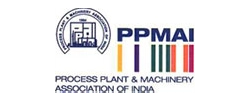Materials and Properties:
ASME PCC-1 has guidelines for pressure boundary bolted flange joint which covers the assembly elements that are essential in ensuring a high level of leak-tightness integrity of properly designed and constructed bolted flange joint assemblies (BFJAs). Specifically, this standard defines BFJAs as those applied to pressure-boundary flange joints with ring-type gaskets that are entirely within the circle enclosed by the bolt holes and have no contact outside this circle.
ASME PCC-1 is not mandatory as per ASME Sec. VIII Div.1 code and being considered as an additional project specific requirement insisted by the client.
It depends upon the grade & application. However, in general, the following table can be referred. Maximum service temperatures in dry air, based on scaling resistance
| Grade | Intermittent (°C) | Continuous (°C) |
|---|---|---|
| 304 | 870 | 925 |
| 310 | 1035 | 1150 |
| 316 | 870 | 925 |
| 321 | 870 | 925 |
| 410 | 815 | 705 |
The maximum working temperature of carbon steel depends on the grade and wall thickness of the material, but it's typically around 650°C
The working temperature of titanium alloys typically ranges from 500°C to 600°C, depending on alloying elements and heat treatment conditions.
Upto 1095°C depends upon the grade.
Nil ferrite is normally less than 0.5 ferrite having stainless steels which are used in materials for Urea applications.
Heat Treatment and Processes:
By following the specific sequence of fabrication, we can avoid heat treatment of SS/SDSS like with buttering at weld edges, heat treatment of barrier layer of weldoverlay etc.,
It depends upon the specific grade of the material and the intension behind the selection of suitable heat treatment process. There are many types of heat treatment being followed like stress relieving, Annealing, Normalizing, Normalizing & Tempering, Quenching & Tempering, Solution Annealing etc., depends up on the material.
Step cooling heat treatment process is a quick way to assess a material's susceptibility to temper embrittlement. The process involves setting automated cycles and plotting ductile to brittle transition curves.
Thermiculite is one of the special types of gaskets used for a high integrity sealing at extremes of temperatures (upto 1000°C).
Design and Analysis:
When there are no standard code rules for doing mechanical design calculations, FEA will be used as an alternative approach to do calculations, models & simulations.
In general, NACE plates which are produced by considering the compliance against required standard (s) (e.g., NACE MR0103, NACE MR 0175) by following the specific guidelines stipulated like steel making practice, controlling of impurities, chemical & mechanical properties restriction, in the respective NACE standard.
HIC plates are either HIC resistant plates or HIC tested plates depending upon the severity of the sour service where it is prone to have Hydrogen Induced Cracking. HIC resistant plates are intentionally produced by the plate mills for specific set of sour service environments. HIC tested plates are chosen & used based on the passing of HIC test.
Gaskets and Seals:
Change gasket is a Metal-wound gasket designed to deliver a seal with the most dynamic recovery, with Graphite filler. The high level of stored energy gives the Change gasket extremely high recovery. In a compression test against other gaskets, the Change Gasket recovered almost five-times better than a Kammprofile or DJ gasket.
Thermiculite gaskets are being used for the below advantages: Freedom from oxidation, Chemical compatibility exceeds graphite, Can be used in temperatures upto 1000°C, Fire safe, Wide range of metals available.
Corrosion and Wear:
Corrosion during fabrication & preservation – By deploying dedicated work practices, proper segregation & storage can help to avoid corrosion at this phase.
In-service corrosion – By choosing right material & monitoring of process parameters
Selection of right material b. Using of material of right source c. Getting material after passing necessary corrosion testing d. Necessary care to be considered during Heat treatment & Welding









